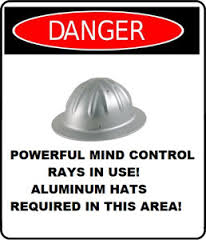 Okay maybe “psycho-sonicstry” won’t be as popular as “satellite actors” or even “podjecting” and other terms we’ve come up with here in Sonic Society laboratories, but it’s hard not to consider the affect of audio dramatic storytelling on the psyche. Certain tales work especially well in different mediums. Television and movies have been excellent at adapting many novels, but some remain tantalizingly out of reach. Frank Herbert’s Dune series never really match on film the power and philosophy of the books.
Okay maybe “psycho-sonicstry” won’t be as popular as “satellite actors” or even “podjecting” and other terms we’ve come up with here in Sonic Society laboratories, but it’s hard not to consider the affect of audio dramatic storytelling on the psyche. Certain tales work especially well in different mediums. Television and movies have been excellent at adapting many novels, but some remain tantalizingly out of reach. Frank Herbert’s Dune series never really match on film the power and philosophy of the books.
But maybe audio drama could. There’s a strange hybrid feeling that audio has with stage (which we’ve mentioned before), film, movies, and the written word that almost bridges the gap. Maybe its because all the pictures are still manufactured in your head.
Not that HBO won’t try. Their success of Game of Thrones by George R.R. Martin has emboldened the flick fairies of the cable realm to give a shot at Isaac Asimov’s Foundation Trilogy as a series.
But before we make “psycho-history” a buzz word again, check out OpenCulture’s homage to Mr. Asimov in the world of radio drama and our own psycho-sonicistry with Hear Radio Dramas of Isaac Asimov’s Foundation Trilogy & 7 Classic Asimov Stories.
Try it out a couple of times. It might grow on you.
Psycho-Sonicistry. Psycho-Sonicistry. Psycho-Sonicistry…
 The incredible folks at Chatterbox Audio Theater have opened their doors to another season of scripts requests! We love the CAT here on the Sonic Society. Their high quality shows and performances have become a regular staple for audiophiles everywhere. So, pull out those pens, pencils, or word processors, follow the guidelines and get cracking to help bring another year of stellar shows for new ears.
The incredible folks at Chatterbox Audio Theater have opened their doors to another season of scripts requests! We love the CAT here on the Sonic Society. Their high quality shows and performances have become a regular staple for audiophiles everywhere. So, pull out those pens, pencils, or word processors, follow the guidelines and get cracking to help bring another year of stellar shows for new ears.







